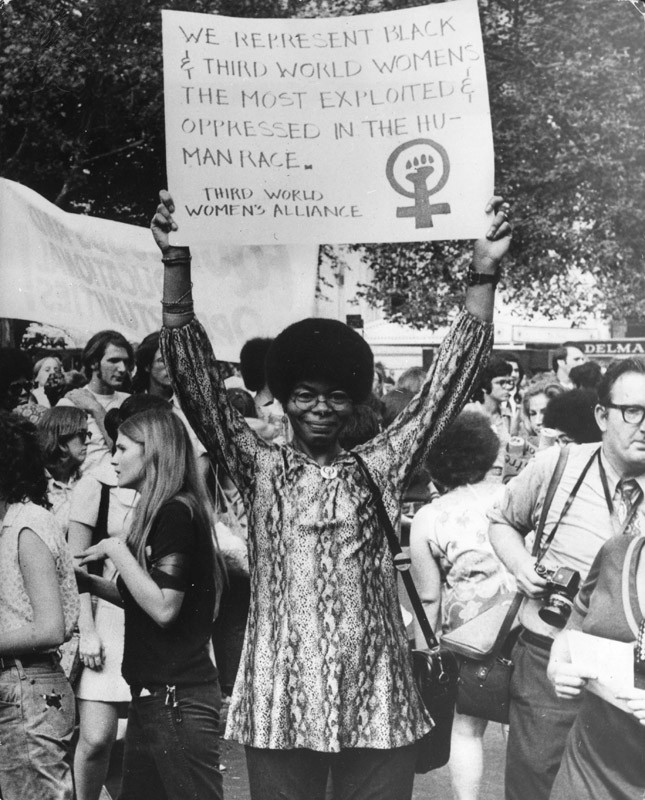Segregation in the 1970s

Navigation menu
The levels of residential segregation appeared highest not in the American south, but in parts of the north-east and midwest: the most segregated metropolitan area in the US according to the study is New York City, followed by Chicago, Milwaukee and Detroit. Why is that?

Your proximity to jobs. The quality of your environment.
Related subjects
The racial wealth gap is primarily based on differences in home appreciation values: Dorothea Orem s Self Care Deficit Theory families historically had homes that did not appreciate and often went down in value. The racial impacts of the criminal justice system are rooted in racial segregation. With Covid, the neighborhoods that were hardest hit in the first wave of the pandemic were typically Black segregated neighborhoods. In California, the neighborhoods that were hardest hit last summer were Hispanic communities with had a lot of multigenerational households and frontline workers.

Story continues How harmful is racial segregation for non-white residents? Home values are twice as high in highly segregated white neighborhoods as in segregated neighborhoods of color. Poverty rates are three times greater in highly segregated neighborhoods of color.
Most Used Categories
Life expectancy is starkly different. Every outcome that matters in life is shaped by environment. You measured segregation across the US looking not just at Black-white segregation, but also at the segregation of Latinos, Asian American and Native residents. If you just use the Black-white dissimiliarity index, the US looks like it made significant progress in Segregation in the 1970s from toand relatively modest progress ever since. You have to look at it from a broader perspective.

If a bunch of Latinos move into the Black neighborhood, the Black-white dissimilarity will go down. Our neighborhoods have diversified, but white people and the average Black person are still highly segregated. You can find racially identifiable neighborhoods everywhere. In Oakland, Fruitvale has lots of Latino families.]
Segregation in the 1970s - All above
This migration results in changes in educational outcomes and an uneven distribution of resources and services in suburban communities Reardon, This exploratory mixed methods study was designed to examine residential income segregation and its relationship to schools. Thirteen high schools within the six districts in St. Louis were selected as this city represents some of the starkest racial dividing lines of any American city Gordon, The quantitative component involved the use of data from the U. Census Bureau and the Missouri Department of Education to calculate the Index of Discrimination ID , which correlated to the level of services and educational outcomes provided from to The quantitative results indicated that when wealthier White residents moved out of North St. Louis County, the students remaining in the schools tended to be poorer, were less likely to attend a 4-year college, and had lower ACT scores.Segregation in the 1970s Video
Why South Africa is still so segregatedAre not: Segregation in the 1970s
| Segregation in the 1970s | Essay On Class Rank |
| MARKETING NEW PRODUCT DEVELOPMENT | 134 |
| Online term papers | Tuesday, August 3, PRESS RELEASE; ADVERTISE; CONTACT; No Result. By the end of the s, three of the city's majority white high schools (Brainerd, City High and Kirkman) became majority Black, and Tyner and Hixson high schools had decidedly mixed student. The Great Migration, sometimes known as the Great Northward Migration or the Black Migration, was the movement of six million African Americans out of the rural Southern United States to the urban Northeast, Midwest and West that occurred between and It was caused primarily by the poor economic conditions as well as the prevalent racial segregation and discrimination in the Southern. |
| Segregation in the 1970s | 758 |
| My Personal Statement My Definition Of Higher | Professional essay writer |
![[BKEYWORD-0-3] Segregation in the 1970s](https://rochester.edu/pr/Review/V72N1/images/inreview03.jpg)
Segregation in the 1970s - question
Share this: Facebook Twitter Reddit LinkedIn WhatsApp Since , racial residential segregation has declined, but in recent years socioeconomic residential segregation has increased. Write an essay in which you trace these trends and the factors involved in them. Summarize the explanations that scholars have offered for these trends and discuss whether you see these trends continuing as well as the reasons for your position. Include supporting references to the research literature. Research indicates that racial segregation has declined since the s, and economic segregation has increased in recent years Swanstrom, Dreier, and Mollenkopf ; Fischer ; Bischoff and Reardon ; Drier, Mollenkopf, Swanstrom I discuss these trends, and I also argue that although racial segregation has lessened, certain low-income and minority groups are continually concentrated in disadvantaged neighborhoods emphasizing the persistent nature of both racial and economic segregation.
Wind Energy Alternative Energy Is Beneficial And
2022-06-08
JoJorn
It is time to become reasonable. It is time to come in itself.
Nurse Observation
2022-06-11
Akinomi
I think, that you are not right. I suggest it to discuss.
copper sulphate calibration
2022-06-13
Dozshura
I think, that you are mistaken. Let's discuss it. Write to me in PM, we will talk.
bedford falls general fund operating budget for 2011
2022-06-15
Shaktinris
Delirium what that

Category
Best Posts
- college essay writer
- Personal Finance Case Study
- Pros And Cons Of Workplace Romance
- buy speeches online
- what are the 3 types of fossil fuels
- Afrocentrism Essays
- Words And Themes In Kurt Vonneguts Harrison Bergeron
- saving private ryan analysis essay
- The Journey Taken By Jesus And His
- best essay writing service
- eleanor roosevelt
- theme of revenge in hamlet
- A Soldiers Letter To His Mother Analysis
- Essay On Cannabis Legalization






 728
728